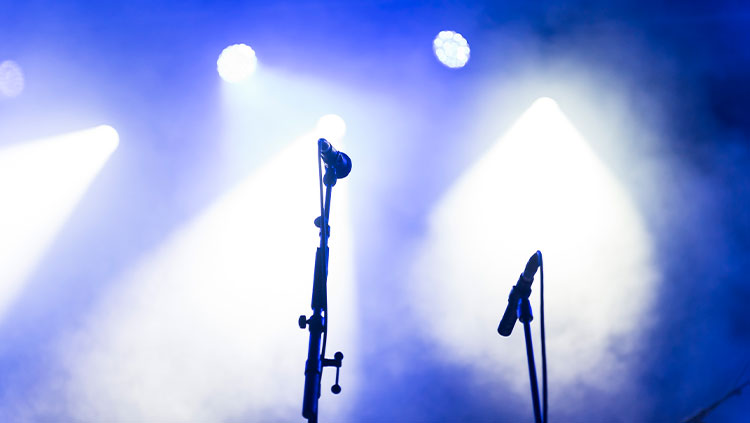Loading component...
Sounds of silence: Australia's live entertainment sector struggles
Content Summary
- COVID 19
Loading component...

This article was current at the time of publication.
When social distancing and other restrictions were introduced because of the coronavirus (COVID-19) outbreak, every arts activity – from theatre and dance companies to bands, festivals, and pub gigs – abruptly shut down.
Musicians, actors, dancers, and other live performers, who are part of a A$112 billion industry that employs more than 600,000 Australians, are estimated by the Australian Music Industry Network and Australian Festivals Association to have lost A$340 million in paid performances.
Caught in the crisis is Kylie Thompson FCPA, CEO of Perth-based Sorrento Strategic Accounting and a board member of West Australian Music (WAM).
In the 22 years she has spent building her practice, Thompson has slowly pivoted to serve a client base that is now 75 per cent musicians, including the Australasian Performing Right Association (APRA) and Australian Recording Industry Association (ARIA) award-winning musician John Butler, in addition to sponsoring music awards.
“COVID-19 decimated the industry overnight,” Thompson says. “The closing of live venues eliminated the entire industry’s income for the foreseeable future.”
One emerging local band on its dream support tour with an international act had to return home halfway through the tour before Australia’s borders were shut.
“Another client, who tours nationally with children’s music workshops, lost $130,000 overnight,” Thompson says.
Leading music manager and founder of Jarrah Records, Philip Stevens, whose clients include Butler, The Waifs, Stella Donnelly, and San Cisco says all four had to cancel overseas tours between April and September 2020.
“John [Butler] had a six weeks’ tour of Europe starting on 5 April and had pretty much sold out 30 concerts,” Stevens says. “Most venues he was playing were 1,000 to 2,000 seat capacity.”
Fortunately, Stevens has been able to reschedule the shows for the same period next year while Butler focusses on family time and stays engaged with his fan base globally through social media.
Stevens’ other clients have been more severely impacted. For example, San Cisco was to tour to support an international album release later this year. However, Stevens says streaming services are starting to create a stronger income for his artists, especially among younger audiences.
'Bandaid’ support
A spokesperson for the Office for the Arts within the recently established Department of Infrastructure, Transport, Regional Development and Communications says the Australian Government is estimated to inject between $4 billion and $10 billion in the creative and cultural sector as part of its $320 billion stimulus package, in addition to the $750 million it invests annually.
“The government has also provided a $27 million targeted support package for areas of the cultural and creative sector identified as being most affected by COVID-19, with support immediately available to Indigenous art centres, regional arts, and the live music and performance industry,” the spokesperson says.
Queensland, South Australia, Tasmania, and Victoria state governments have asked arts fund grantees to contact them for advice, while some are offering stimulus packages: notably in Victoria where artists and arts workers are eligible for a $500 million Working for Victoria fund.
Meanwhile, Creative New Zealand is in the first phase of its Emergency Response Package, and has committed NZ$16 million to the arts sector through to 30 June 2020.
However Thompson says the assistance packages are a bandaid.
“There has been no special recognition to date of the predicament the whole industry is in. Those in the arts industry feel the government has forgotten them. They desperately need more support. The industry is dying.”
Artistic director of Opera Australia, Lyndon Terracini AM, agrees: “We don’t expect the government to do everything, but when the industry emerges from this, we want to have something left.
“It is your culture that defines you as a nation. Your economy doesn’t define you. If there is none of that, who are you?”
Supporting a multimillion-dollar rescue package
Contrary to popular belief, Thompson says the majority of her musician clients have never had any contact with Centrelink and didn’t have a Customer Reference Number (CRN) to claim JobSeeker.
“Many of my clients weren’t eligible because of their partner’s earnings,” she says.
“There was also no way the average person could complete the JobSeeker paperwork without assistance. As an accountant, I had the skills to help and I knew I wasn’t going to get paid. But, for a week or two, I focussed on putting out fires.”
Although Stevens concedes that while JobKeeper has been a good alternative for artists who qualify, “so many people in the industry, from lighting engineers to production companies, fall between the cracks and they’re hurting”.
Thompson says because the income of many performers varies so dramatically, they couldn’t even qualify for the Alternative Turnover Test.
Live Performance Australia (LPA) CEO Evelyn Richardson is currently discussing a recovery package with the federal government and says it would include tax incentives, business recovery grants, underwriting of shows, investment in innovations such as digital, and significant investments to the Department of Infrastructure, Transport, Regional Development and Communications.
“We believe arts and entertainment is an essential part of economic and social recovery,” Richardson says.
She says the recovery package would likely exceed the $650 million support package LPA had previously indicated was needed.
According to the Department of Infrastructure, Transport, Regional Development and Communications, with social distancing measures starting to ease, the government is working with the arts sector to reopen and continues to meet regularly with representatives from the sector.
Music licensing on hold
Nationally, Music Licensing Australia has paused all music licensing activity for Covid-19-affected industry sectors since 24 March. Invoices, new licences, and debt recoveries have also been halted.
Licences have previously been required for different types of music, with licence types including hotels and pubs, cafes, dance schools, cinemas, clubs, community music groups and more.
Up to 25,000 refunds are expected to be issued for the lockdown period.
For more information on the current state of licensing, contact OneMusic Australia or email [email protected]
Loading component...
Discover more
COVID-19: ever get that feeling of déjà vu?
25 July 2022 | What’s ahead for businesses and their employees
- COVID 19
Published on22 min read timeHealing the cracks in your workplace culture
Practitioners report low staff morale and a decline in productivity
- COVID 19
article·Published on“One extreme to the other”: how accountants and their clients are faring
Practitioners and their clients share how they’ve navigated a tumultuous year
- COVID 19
article·Published on
COVID-19 support
Resources, guides and information to support you and your clients
- COVID 19
The COVID new world
Published in SMS Magazine (May 2020)
- COVID 19
COVID-19 prompts rapid conclusion to Australia’s audit inquiry
Published in The Accountant UK (December 2020)
- COVID 19

